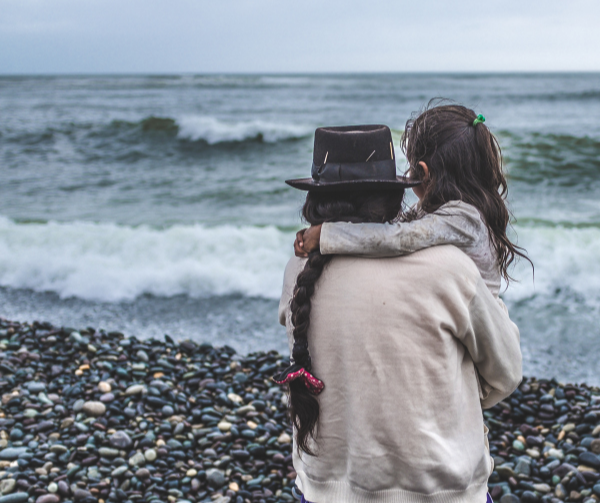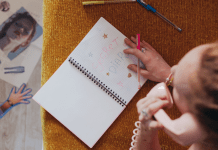
With all that is going on in the world today, it is easy for me to become disheartened with humanity and the direction our world seems to be going. Watching the news these days is a guarantee that I’ll slip-slide away toward a mommy existential crisis.
News articles that relay the latest research on how technology impedes social skills. Or television segments that highlight how our children now have fewer safe spaces, as bullies follow classmates home from school thanks to social media. Or a live report interrupting a feel-good morning show with news of a school shooting. These are just a few examples that have quickly sent me spiraling into sadness and fear that, one day, my children will face these adversities.
These issues feel so large and complex that I find myself succumbing to a feeling of powerlessness.
As a way to pull myself out of this parent’s-worst-nightmare pit, I hold on to what power I do have — one of those powers being that I can do my best to raise empathetic children.
Empathy is the antithesis to hate and aggression — it is the interpersonal skill that fosters deep connection. Empathy is the lifeline of humanity — it is essential to the development of kindness, compassion, and altruism. In other words, our world, if we want to build up humanity rather than tear it down, needs more empathy.
Teaching our children empathy
The best thing we can do to teach empathy to our children is to model it. If we are empathetic ourselves and show our children what empathy looks and feels like, they are most likely to develop empathic traits. So, how exactly do we do this? Well, we can:
- See other people’s perspective. Perspective taking is a huge part of developing empathy, as it is “walking a mile in the other person’s shoes.” It’s truly understanding someone’s point of view — why they think, feel, and behave the way that they do. It’s understanding their story. I’d like to add here that perspective taking is not the equivalent of excusing or condoning, rather it’s deeply understanding.
- Validate. Validate, validate, validate — validate your children, your partner, your friends… the more your child witnesses validation and feels it, the more apt they will be at identifying and regulating their own emotions as well as identifying and understanding others’ emotions. Validation is key to emotional intelligence and emotional intelligence is key to empathy — in order to connect to others and to feel compassion for others, we have to be able to know and understand emotions. You can validate others by expressing or reflecting the other person’s emotion or thought back to them. For example, “You are disappointed and frustrated with how school is going right now.” Like perspective taking, validation is not agreement, rather its voicing understanding.
- Cultivating awareness. Hand-in-hand with perspective taking and validation is building a keen and accurate awareness of others — this includes awareness of our human diversity. This means helping our children build awareness of different cultures, races, religions, genders, sexual orientations, ages, socio-economic statuses, and abilities. The best way to cultivate awareness is through experience. Read about, visit, converse with, and spend time with a diverse range of people. Connecting with others who are different from us breaks down stereotypes and ignorance that perpetuate hateful and aggressive acts. Once we are culturally aware, it’s likely that we can see our common humanity and experience greater empathy for others.
“You must be the change you want to see in the world.” — Gandhi
Anytime I find myself feeling particularly disillusioned with the world and humanity, I hold this quote by Gandhi in my mind and heart. I remind myself that, while I cannot change the entire world — I simply don’t have that kind of power — I do have the power to make changes in my world. By stepping into this power, I can create a kinder, more compassionate world for my children.









